CELEBRATING 350 YEARS OF THE PARIS OPÉRA BALLET
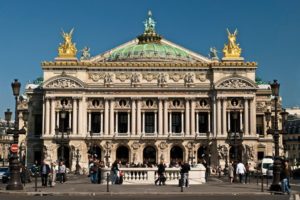
The season’s opening on 27 September this year marked the 350th anniversary of the Paris Opéra Ballet. Over the next 16 months, there will be ample opportunity for Champagne-popping as it celebrates its founding by Louis XlV on 28 June 1669.
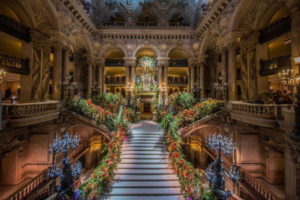
Following tradition, the season’s first night began with the ‘Défilé du Ballet’ or Ballet Parade, involving over 250 dancers over 20 minutes, starting with the students of the Paris Opéra’s Ballet School.
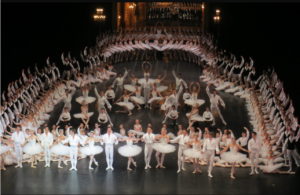
This year, as trumpets sounded the opening bars of Berlioz’s “Marche des Troyens”, first one, then more tiny heads appeared on the horizon, almost 80 metres from the orchestra pit. Gradually, lines of young girls in tutus walked with balletic grace towards the 2,100-strong audience in the Palais Garnier, the 19th century home of the Paris Opéra.
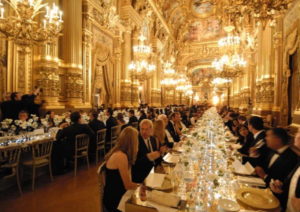
For many first nighters, the spectacular “défilé” parade is often the highlight of the evening. This year, to heighten the dramatic effect, the back stage opened to reveal the Foyer de la Danse, a richly gilded room where wealthy patrons once gathered to meet ballerinas. Following the tradition set with the first Parade held in 1926, this year it started with students ranging from ages 8 to 18, then came the ballerinas of company itself, and climaxing with the principals, or “étoiles”. The boys then appeared, followed by the male corps de ballet and lastly the soloists.
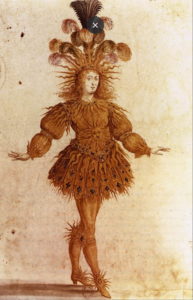
The Paris Opéra Ballet originally had the much grander title of the Académie Royale de Musique, and performed mainly at the Palace of Versailles and the Palais Royal in Paris. Louis XIV was an accomplished dancer and often performed in ballets especially choreographed for him.
The 1789 Revolution put an end to these entertainments, but performances soon resumed in 1794, minus the “royal” in their title, becoming the Paris National Opéra and Ballet.
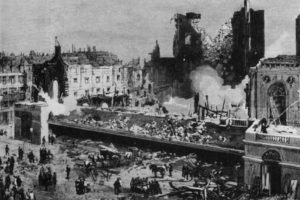
They performed first in the Salle Montansier in the rue de la Loi—the name of the rue de Richelieu from 1793-1806, then at the Salle Le Peletier in the 9th arrondissement from 1821 to 1873, when it was destroyed by fire.
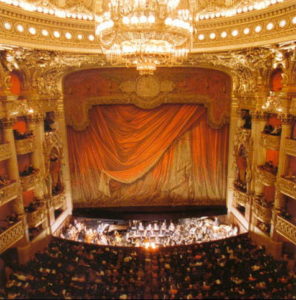
A failed attempt to assassinate Napoleon lll in 1858 prompted him to commission the architect Charles Garnier to build an opera house with a discreet, secure side entrance to ensure his safety. However, he never used it: He was ousted from power four years before the Palais Garnier opened. Delayed by the Franco-Prussian war of 1870-71, the building finally opened in 1875.
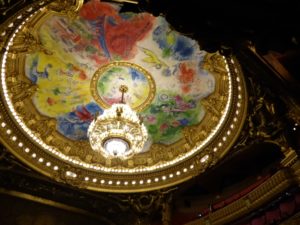
The Paris Opéra Ballet bills itself as being “modern since 1669”. It sees its task as not only maintaining its position as one of the great companies of the world, but satisfying current audience tastes and at the same time attracting a new generation of patrons. This anniversary season will see 184 ballet performances, four of them being new creations for the company, and another four new to the repertoire.
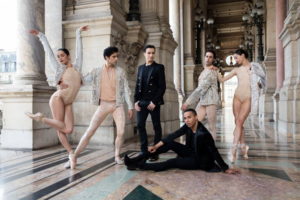
In keeping with the company’s focus on being relevant to contemporary tastes, this year the House of Balmain will be partnering with the Paris Opéra Ballet in a new creation, ‘Renaissance’, with the creative director of the fashion house, Olivier Rousteing, designing all of the ballet’s costumes. This new ballet by Sébastien Bertaud will pay tribute to the artistry and traditions of the Ecole de Danse Française, from the Versailles of Louis XlV to the Opéra Garnier of today.
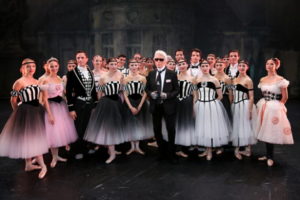
In the past, many of the most renowned designers have lent their talents to the Opera, including Chanel, Pierre Balmain, the founder of the eponymous fashion label, Yves St Laurent, Christian Lacroix and Karl Lagerfeld.
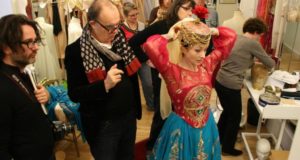
Both the Paris Opéra Ballet and House of Balmain see this as an exciting opportunity to explore new areas of artistic creativity, both from the perspective of dance as well as costume design and craftsmanship. Bertaud and Rousteing aim to push the identity of both the fashion house and the ballet company into the future, with new ideas and energy for a new generation.
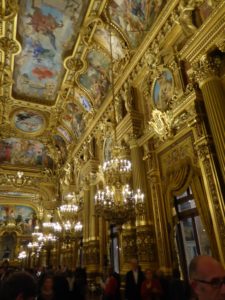


Bonjour Cheryl
How could one not have goose bumps when ascending the famous stair case, drinking a glass of champagne and then sitting in a box watching the ballet in that famous house?
Thank you for the history reminder and those lovely photos. It reminded me of a special night just over a year ago when we were there.
Pam B.